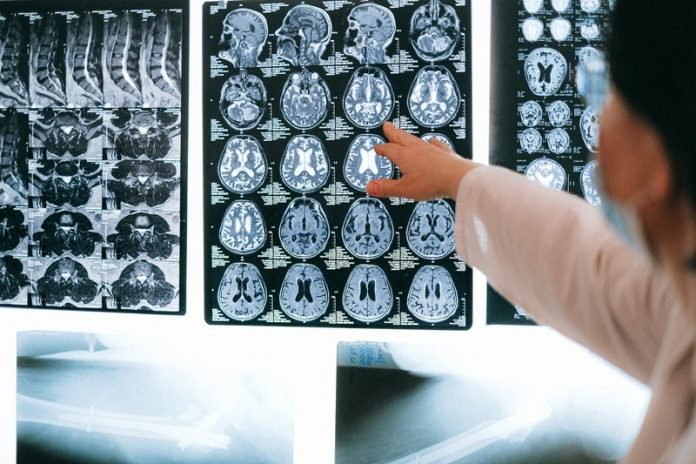
In a new study from University Hospital Southampton, researchers reported the range of brain complications experienced by hospitalized adults in the UK with severe COVID-19.
They found that strokes were a common complication, with higher rates than expected amongst younger people.
The findings also highlight that risk factors such as diabetes and high blood pressure, contributed to the risk of stroke, including in younger people.
During the first wave of the pandemic in 2020, the research team set up a rapid response, online anonymized data platform.
It enabled doctors throughout the UK to report COVID-19 related neurological and psychiatric problems.
Of the 267 cases, the team found strokes were the most frequently reported conditions, affecting nearly half of the patients.
Over a quarter of strokes occurred in patients under 60 years old, many of whom had modifiable risk factors that meant they were already at risk of stroke.
Other common conditions included delirium, psychiatric events and other evidence of damage to the brain (encephalopathy).
More than 10% of patients experienced more than one brain condition, and these patients were more likely to require intensive care and ventilation.
The team says it was striking not only how many different neurological and psychiatric events we observed in this study, but also that some of these conditions occurred together within the same patients.
This suggests COVID can affect multiple parts of the nervous system in the same patient.
Patients with strokes also had blood vessel blockages or thrombosis elsewhere in the body so this is important for understanding why some strokes occur during COVID-19.
The findings suggest that the health status of patients prior to COVID predicted how much they recovered from neurological complications, which is important from a public health perspective.
Optimizing health status could be a vital way to increase our resilience to this and future pandemics.
The key take-home messages are that COVID-19 amplifies the risk of stroke, including in younger people.
Public health measures could reduce this, including lifestyle measures to avoid developing diabetes and high blood pressure, good control of blood sugar and blood pressure, and avoiding the risk of severe COVID-19 through vaccination and other public health measures.
If you care about COVID, please read studies about autopsy study shows how COVID-19 damages the brain and findings of COVID-19 can cause severe inflammation in the brain.
For more information about COVID and your health, please see recent studies about COVID-19 may strongly change your brain and results showing the cause of ‘brain fog’ in people with COVID-19.
The study is published in Brain Communications. One author of the study is Dr Amy Ross-Russell.
Copyright © 2021 Knowridge Science Report. All rights reserved.



